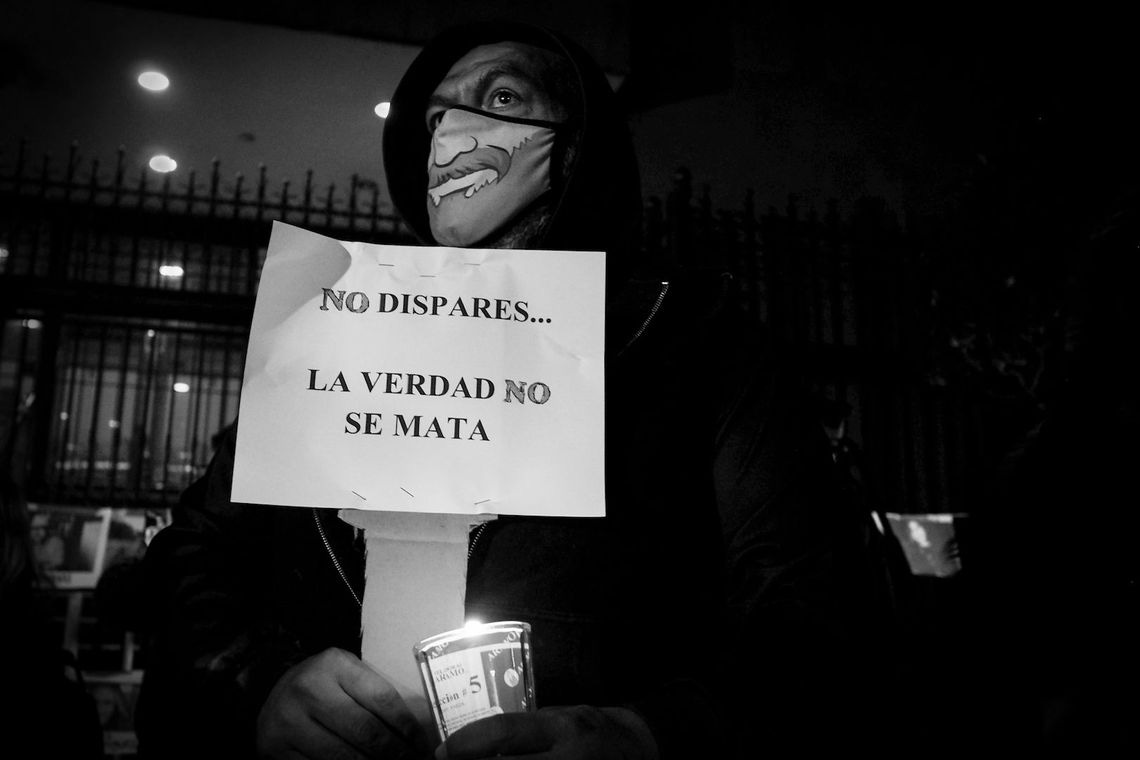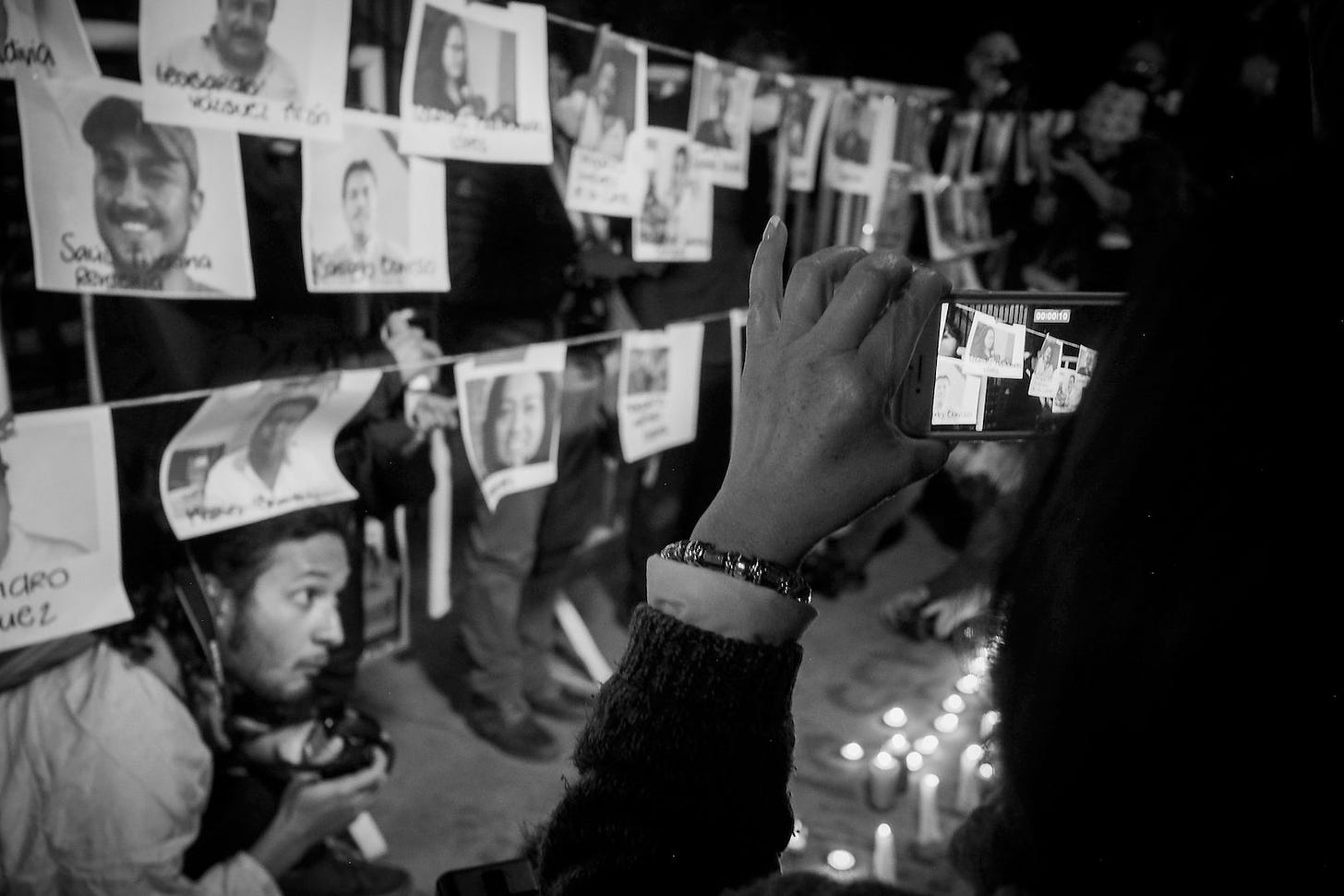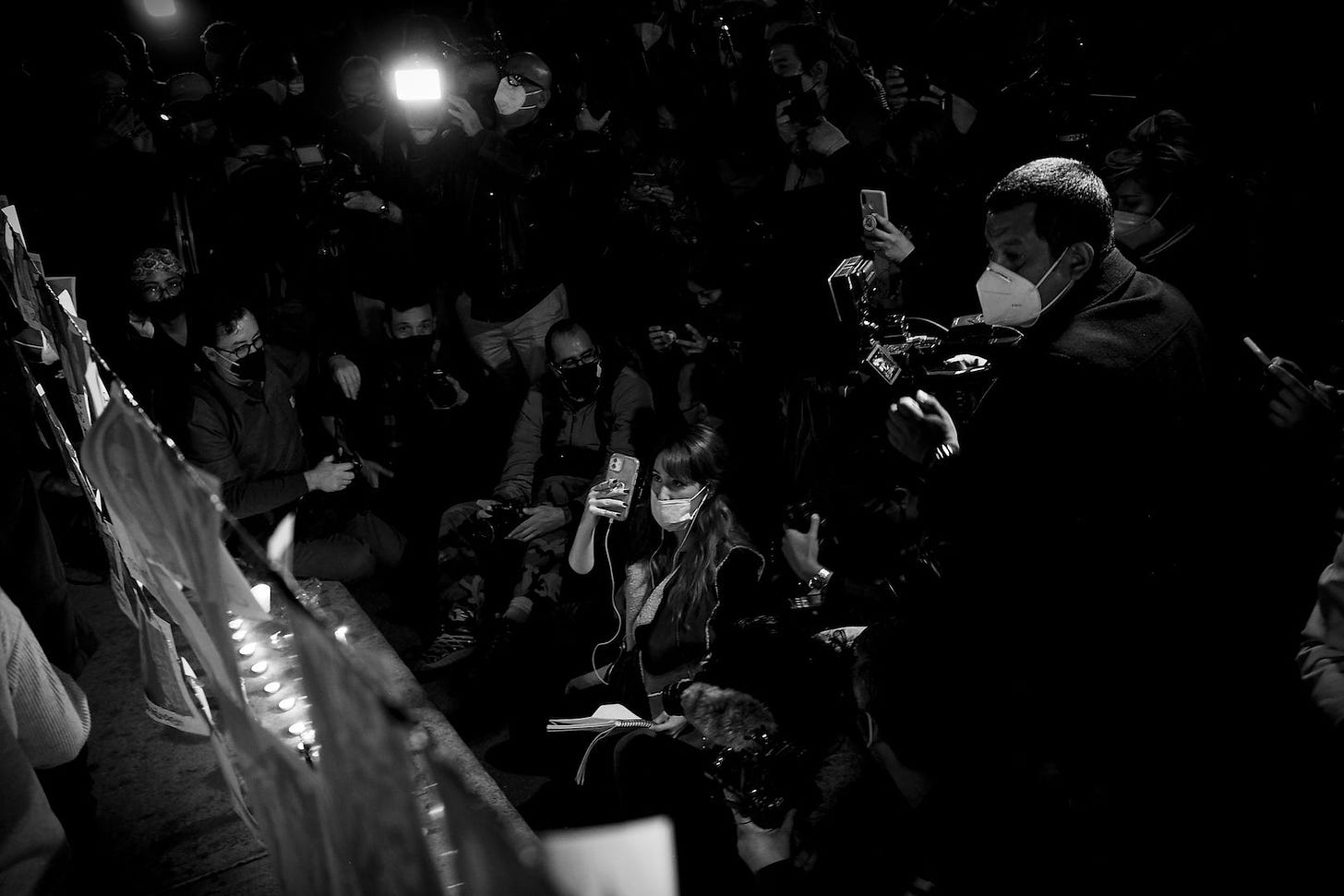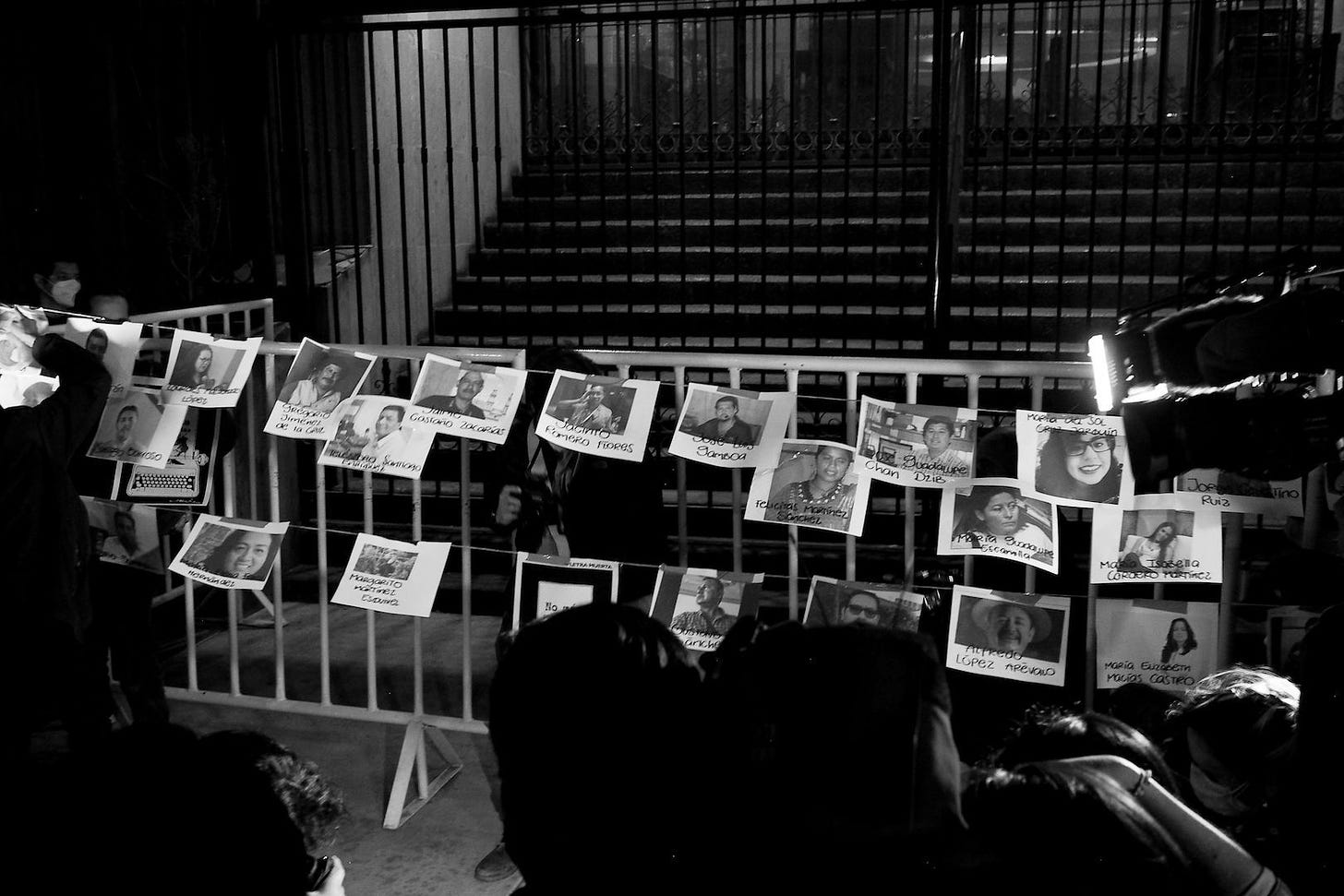The record murder of journalists in Mexico condemned by the whole of Europe. Except one Czech ultra right-wing MEP
Mexico has had the blackest year in history in terms of the number of journalists murdered. A total of 17 were killed last year - the most in the world.

Mexico has had the blackest year in history in terms of the number of journalists murdered. A total of 17 were killed last year - the most in the world - and it is not only the victims' colleagues who are ringing the alarm bell. Journalists are being targeted by the criminal underworld and by the President, and they have found support outside their country - the European Union has stood up for them and issued a resolution condemning the violence against the press in Mexico. Two MEPs, one of them Ivan David from Okamura's SPD, shamefully voted against the text, which, among other things, expresses condolences to the families of the deceased.
Even though Mexico is not in open war with a foreign country, journalists routinely die there at a higher rate per year than in war-torn countries. The 17 journalists killed there last year are more than those who were killed in Ukraine or Syria last year. Of those, 12 were killed directly in connection with the profession, said Artículo 19, an organization that monitors journalists' safety.
It was already indicated in the first days of last year that this year would be a tragic one for journalists. In two weeks in January, three media representatives were murdered, which in itself was extreme considering that seven journalists were murdered in the entire previous year. One of those killed was Lourdes Maldonado, who three years earlier had expressed her fears of liquidation directly to President Lopez Obrador at a press conference and asked for his help. After her death, the President reported that she was part of a program to protect journalists in her state of Baja California, but not in a federal program of the Department of Defense.
Only a few weeks ago, in mid-December, the well-known broadcaster Ciro Gómez Leyva narrowly escaped death, his life saved by the armor of his car when he was fired upon from a motorbike in the capital. In response to this latest attack last year, some 200 journalists from Mexico's leading media outlets signed an open letter to the country's president, during whose three-year tenure a total of 42 journalists have been killed so far. In the letter, they call on him to moderate his attacks on the press, or he will drive the country into an even bloodier era.
The elimination of journalists in Mexico is a long-running problem. More than 90 percent of crimes in the country go unsolved, which is one of the reasons why they have been recording more than 30,000 murders a year for several years running. Another 110,000 or so went missing earlier this year. And we're only talking about reported cases.
Although in most cases it is impossible to point to the killer and therefore prove a motive, the murdered journalists are usually linked by the fact that they covered - often on a local level - topics such as corruption, criminality, and organized crime's links to politics.
The events also alarmed European politicians, who addressed the murder of journalists in Mexico at the plenary session of the European Parliament last March. About 700 MEPs from all over Europe voted with near unanimity to adopt a resolution which, among other things, expresses condolences to the families of the victims, condemns the killing of journalists and human rights defenders in Mexico, calls for an independent investigation following the Protocol for the Investigation of Crimes against Freedom of Expression and calls for the protection of freedom of expression.
Czech representatives, such as Jiří Pospíšil and Luděk Niedermayer, are among the text's sponsors, and its adoption was called for directly in the plenary debate by the European Commissioner, Věra Jourová. 607 MEPs present voted in favor, 73 abstained and only two MEPs opposed the document. They were Marcel de Graaff of the Netherlands for the Forum for Democracy and Ivan David of the Czech Republic for Freedom and Direct Democracy.
Recently, a group of 50 MEPs wanted to have Marcel de Graaff formally condemned for allegedly racist remarks he had made in the spring of 2018 when in a debate he accused Muslims of "returning Europe back to the Middle Ages". This is therefore the same narrative that Tomio Okamura's Czech SPD is presenting, for which Ivan David is "digging in" in Europe. The former Czech Social Democratic Party (ČSSD) health minister and head of the psychiatric hospital in Bohnice have been drawing attention to himself lately, especially by spreading pro-Russian disinformation and anti-Ukrainian propaganda.
I contacted Ivan David last year shortly after the resolution was adopted to ask him to explain why he was voting against the condemnation of the violence and against expressing condolences to the families of the journalists who were killed. However, an e-mail sent to the official e-mail address of the MEP went unanswered. The same is true now that I have asked him again for a statement after three-quarters of a year. He has not commented on the vote on his MEP website, where he otherwise justifies a large part of his decisions. Even the headquarters of the SPD party did not respond to questions.
"Mr. David and his colleagues in the EP often vote against resolutions in support of human rights because, unfortunately, they see the world differently, and I believe that for them the support of journalists or human rights defenders is not important. I also conclude this from the regimes they publicly support in the world," MEP Jiří Pospíšil wrote to me.
Regarding the resolution itself, Pospíšil says that such resolutions have a twofold impact on the real situation: "First, they are a gesture of support that helps victims of persecution, threats or restrictions on their rights. Several times, after a similar resolution has been passed in the European Parliament, I have been contacted by people from the country in question about how important it is for them that someone is thinking of them and has publicly expressed support for them. Secondly, most governments will indeed give such criticism from the EU a second thought. Moreover, Mexico, for example, is not a dictatorship where some mad dictator would just laugh at such a resolution. Here, I believe that the government will try to improve the situation because the EU is an important partner for it."
The good news is that so far this year there have been no tragic events towards the press. However, the country is still struggling to recover from the wounds of the past 12 months.






